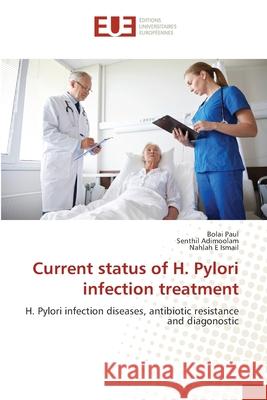Current status of H. Pylori infection treatment » książka
Current status of H. Pylori infection treatment
ISBN-13: 9786202277365 / Angielski / Miękka / 2018 / 52 str.
H. pylori infection is highly associated with main symptoms and death that are recently affecting 50-75% of the population in the world. Different types of therapy are used to treatment of H. pylori infection such as, standard triple, sequential, quadruple bismuth and concomitan which are the good therapeutic efficacy of H. pylori infection, but recently less effective due to antibiotic resistance and patient compliance. Levofloxacin therapy is a more effective treatment of this infection because low antibiotic rate and eradication rate is higher than other therapy especially metronidazole- clarithromycin resistance. At present, antibiotic resistance is growing problem for the eradication of H. pylori infection such as metronidazole, amoxicillin, clarithromycin and levofloxacin resistance. Diagnosis of H. pylori infection is a crucial part of the better treatment of those diseases. There are different types of diagnostic tests are used to detect of H. pylori infection such as Invasive (endoscopic image, histology, rapid urease test, culture) and Noninvasive (urea breath test, stool antigen test and serological), which diagnostic are best for H. pylori infection.











